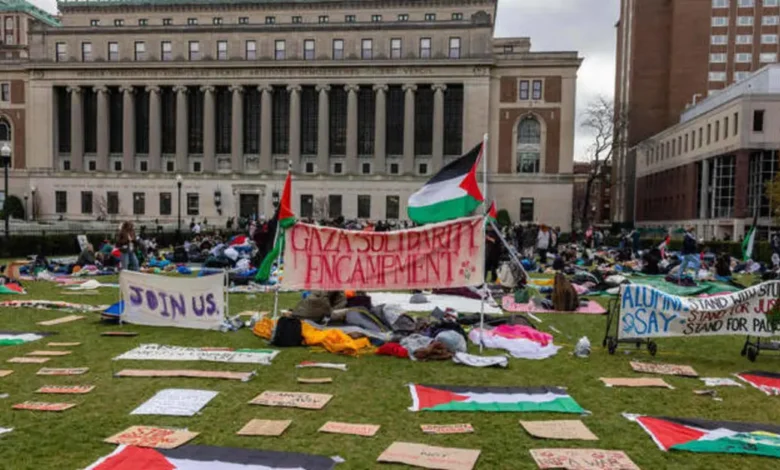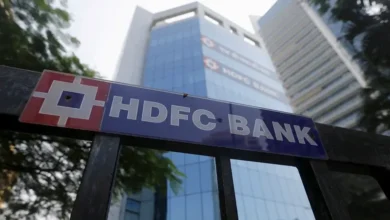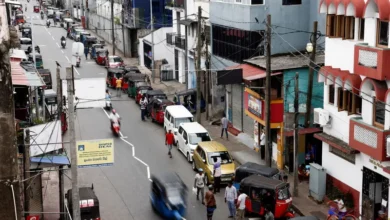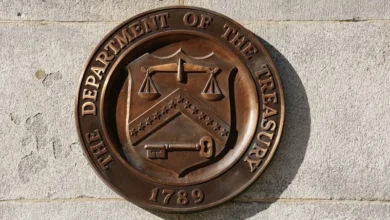Columbia University to pay $200 million in clash with Trump

Columbia University said Wednesday it will pay $200 million to the US government after President Donald Trump threatened to pull federal funding over what he described as its failure to protect Jewish students.
In a sweeping deal that will restore the prestigious New York institution’s access to federal funds, Columbia has pledged to comply with rules barring it from considering race in admissions or hiring, among other concessions.
“Columbia University has reached an agreement with the United States government to resolve multiple federal agency investigations into alleged violations of federal anti-discrimination laws,” a university statement said, adding that the $200 million would be paid over three years.
The university will also pay $21 million to settle investigations brought by the US Equal Employment Opportunity Commission, it said.
“Under today’s agreement, a vast majority of the federal grants which were terminated or paused in March 2025 will be reinstated and Columbia’s access to billions of dollars in current and future grants will be restored,” the statement added.
The return of federal funding offers relief to Columbia, which was under growing financial pressure despite a strong endowment and storied reputation.
The agreement marks a political victory for Trump, who has long accused elite universities of indoctrinating students with anti-nationalist, left-wing ideologies.
Thanking Columbia for “agreeing to do what is right,” Trump warned in a social media post that “numerous other Higher Education Institutions that have hurt so many, and been so unfair and unjust… are upcoming.”
Harvard University is also under scrutiny from the administration over similar funding threats. Wednesday’s carefully worded agreement — in which Columbia admitted no wrongdoing — could serve as a framework for future deals.
“This agreement marks an important step forward after a period of sustained federal scrutiny and institutional uncertainty,” Columbia’s acting president Claire Shipman said.
“The settlement was carefully crafted to protect the values that define us and allow our essential research partnership with the federal government to get back on track. Importantly, it safeguards our independence, a critical condition for academic excellence and scholarly exploration, work that is vital to the public interest.”
Under the settlement, Columbia will maintain a security force to prevent demonstrations in academic spaces, following last year’s unrest when pro-Palestinian protesters clashed with law enforcement and occupied university buildings.
The school also agreed to “promptly provide” federal authorities with requested information on “disciplinary actions involving student visa-holders resulting in expulsions or suspensions, and arrest records that Columbia is aware of for criminal activity, including trespass or other violation of law.”
Columbia became the focal point of controversy last year amid claims of anti-Semitism linked to protests against Israel’s war in Gaza. Some Jewish students said they were intimidated and that university authorities failed to protect them.
On Tuesday, the school announced a series of disciplinary actions, including expulsions and degree revocations, against nearly 80 students involved in the pro-Palestinian protest movement demanding divestment from Israel.
“Our institution must focus on delivering on its academic mission for our community,” Columbia said in a statement. “Disruptions to academic activities are in violation of University policies and rules, and such violations will necessarily generate consequences.”
While the university appears to be yielding to administration pressure to quell protests, one of the most prominent leaders of the US campus movement is still speaking out.
Mahmoud Khalil, a Columbia graduate and active protester, has sued the Trump administration for $20 million over his arrest and detention by immigration agents. Khalil, a legal US permanent resident married to a US citizen, said he missed the birth of his son while being held in a federal detention center in Louisiana.
He called the lawsuit a “first step toward accountability.”










